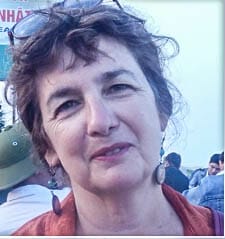They wear bright white shirts suggesting liberal use of starch and bleach, adorned with crisp red kerchief ties around their collars— the uniform of Soviet Young Pioneers. Still dazed by their first plane ride, they walk down an aisle of their chronological peers who shyly offer them bouquets of flowers. Later, these arrivals from afar will awkwardly dance with their local Russian hosts, and then engage in friendly computer vs. Pioneer chess competitions.
Like our protagonists—the orphans from Kabul, and one Qodratollah in particular—we barely remember that not that long ago these visiting Afghanis were homeless street urchins. Qodratolah had been scraping together a life and living by selling home-made key rings and scalped movie tickets. It was the kind of street kid life that gets you murdered in Rio de Janeiro. In pre-glasnost Soviet-ruled Afghanistan however, it landed Qodratolah in an orphanage situated next to a mental asylum. The administrators aim to educate, feed, clothe and house the orphans. No signs of Dickens-like cruelty, these orphanage administrators are benign.
Yet, the older boys rule the orphanage with that Lord of the Flies style sadism that seems to know no borders. A gentle teacher tries to keep life civilized, starting with the morning horn call to rouse the boys awake. This teacher is appreciated by Qodratolah and the other boys, but we cannot help but notice how much this adult is seriously outnumbered.
The camera takes us on one after another slice of a life we otherwise would not know. A Sikh boy regales his buddies on how he brushes and twirls his uncut hair into ritualistic style. Playing cards that show bare-breasted women are hidden contraband under the mattresses of boys whose bodies are newly raging with hormones. Where and how the boys sit in the cafeteria takes up considerable mind space. Mostly though, it seems that life in the orphanage is one ploy after another to avoid the bullies in their midst, and to find fun and adventure beyond the confines of the orphanage’s regimented life.
THE ORPHANAGE is Also About Afghani Politics circa 1989
Outside the orphanage walls the grand events of Afghanistan history in 1989+ are playing out, and we stumble upon these events much like the boys do, as they harvest treasures from a toppled army tank they find at roadside.
It comes as little surprise to learn that The Orphanage is based on a real-world diary. At first you too might find yourself waiting for the story to begin, until long into the film you realize that instead of a narrative arc, we are simply experiencing day-to-day life as Qodratolah does, happily without interference by an adult point-of-view frame.
Lucky for us, we also get glimpses of his imagination too, which breaks out into Bollywood style musical fantasies about love, death and all in between. These Bollywood moments charm! Expect the diary like unfolding of the day-to-day in The Orphanage to cling to you long after the film ends. In this writer’s view, The Orphanage is better in memory than in the real-time slow pace of the story.
Those who love their movies filled with action or dramatic character driven plots should steer clear. Most cinephiles, however, will find much to appreciate in this window on Afghanistan from another time and without a muddying adult filter.
HIGHLY RECOMMENDED
Nominate this for The Picture This Post BEST OF 2021???
Click Readers' ChoiceWant to see who won the Picture This Post READERS’ CHOICE competition last year?
WATCH THIS SHORT VIDEO—
Cast:
Qodratollah Qadiri
Sediqa Rasuli
Masihullah Feraji
Hasibullah Rasooli
Ahmad Fayaz Osmani
Anwar Hashimi
When:
On March 2
Where:
The Orphanage begins streaming on Amazon Prime. For more information visit the 1844 Entertainment page for The Orphanage.
Creative Team
Director: Shahrbanoo Sadat
Inspired by Anwar Hashimi’s unpublished diary
Screenwriter: Shahrbanoo Sadat
DOP: Virginie Surdej SBC
Editor: Alexandra Strauss
Sound Design: Sigrid DPA Jensen, Anne Gry Friis Kristensen
Producer: Katja Adomeit
Production: Adomeit Film ApS
Coproduction: Adomeit Film UG, La Fabrica Nocturna Cinéma, Samsa Film, Wolf Pictures Coproducers: Marina Perales Marhuenda, Xavier Rocher, Jani Thiltges, Shahrbanoo Sadat Associate Producers: Tine Mikkelsen, Jon Hammer
Images courtesy of The Orphanage

About the Author: Amy Munice
Amy Munice is Editor-in-Chief and Co-Publisher of Picture This Post. She covers books, dance, film, theater, music, museums and travel. Prior to founding Picture This Post, Amy was a freelance writer and global PR specialist for decades—writing and ghostwriting thousands of articles and promotional communications on a wide range of technical and not-so-technical topics.




Brothers and sisters…
Let’s help orphans and needy people in Indonesia with us
Please support us at ussunnah.org/orphans